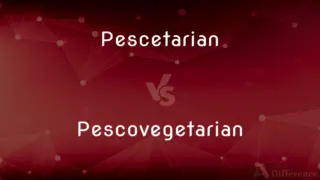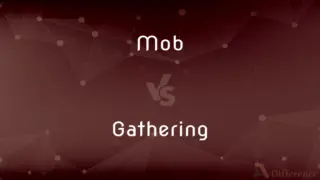Saunter vs. Wander — What's the Difference?

Difference Between Saunter and Wander
ADVERTISEMENT
Compare with Definitions
Saunter
To walk at a leisurely pace; stroll.
Wander
Walk or move in a leisurely or aimless way
I wandered through the narrow streets
Saunter
A leisurely pace.
Wander
Move slowly away from a fixed point or place
His attention had wandered
Please don't wander off again
Saunter
A leisurely walk or stroll.
ADVERTISEMENT
Wander
Be unfaithful to one's regular sexual partner
He had married her and he was not going to be allowed to wander
Saunter
To stroll, or walk at a leisurely pace.
Wander
An act or instance of wandering
She'd go on wanders like that in her nightgown
Saunter
A leisurely walk or stroll.
Wander
To move about without a definite destination or purpose.
Saunter
A leisurely pace.
Wander
To go by an indirect route or at no set pace; amble
We wandered toward town.
Saunter
(obsolete) A place for sauntering or strolling.
Wander
To proceed in an irregular course; meander
The path wanders through the park.
Saunter
To wander or walk about idly and in a leisurely or lazy manner; to lounge; to stroll; to loiter.
One could lie under elm trees in a lawn, or saunter in meadows by the side of a stream.
Wander
To behave in a manner that does not conform to morality or norms
Wander from the path of righteousness.
Saunter
A sauntering, or a sauntering place.
That wheel of fops, that saunter of the town.
Wander
To turn the attention from one subject to another with little clarity or coherence of thought
I had a point to make, but my mind started wandering.
Saunter
A careless leisurely gait;
He walked with a kind of saunter as if he hadn't a care in the world
Wander
To be directed without an object or in various directions
His eyes wandered to the balcony.
Saunter
A leisurely walk (usually in some public place)
Wander
To wander across or through
Wander the forests and fields.
Saunter
Walk leisurely and with no apparent aim
Wander
To be directed around or over
Her gaze wandered the docks.
Wander
The act or an instance of wandering.
Wander
(intransitive) To move without purpose or specified destination; often in search of livelihood.
To wander over the fields
Wander
(intransitive) To stray; stray from one's course; err.
A writer wanders from his subject.
Wander
(intransitive) To commit adultery.
Wander
(intransitive) To go somewhere indirectly or at varying speeds; to move in a curved path.
Wander
(intransitive) Of the mind, to lose focus or clarity of argument or attention.
Wander
(countable) An act or instance of wandering.
To go for a wander in the park
Wander
(uncountable) The situation where a value or signal etc. deviates from the correct or normal value.
Polar wander
Baseline wander in ECG signals
Wander
To ramble here and there without any certain course or with no definite object in view; to range about; to stroll; to rove; as, to wander over the fields.
They wandered about in sheepskins and goatskins.
He wandereth abroad for bread.
Wander
To go away; to depart; to stray off; to deviate; to go astray; as, a writer wanders from his subject.
When God caused me to wander from my father's house.
O, let me not wander from thy commandments.
Wander
To be delirious; not to be under the guidance of reason; to rave; as, the mind wanders.
Wander
To travel over without a certain course; to traverse; to stroll through.
Wander
Move about aimlessly or without any destination, often in search of food or employment;
The gypsies roamed the woods
Roving vagabonds
The wandering Jew
The cattle roam across the prairie
The laborers drift from one town to the next
They rolled from town to town
Wander
Be sexually unfaithful to one's partner in marriage;
She cheats on her husband
Might her husband be wandering?
Wander
Go via an indirect route or at no set pace;
After dinner, we wandered into town
Wander
To move or cause to move in a sinuous, spiral, or circular course;
The river winds through the hills
The path meanders through the vineyards
Sometimes, the gout wanders through the entire body
Wander
Lose clarity or turn aside especially from the main subject of attention or course of argument in writing, thinking, or speaking;
She always digresses when telling a story
Her mind wanders
Don't digress when you give a lecture
Share Your Discovery

Previous Comparison
Pescetarian vs. Pescovegetarian
Next Comparison
Mob vs. Gathering














































